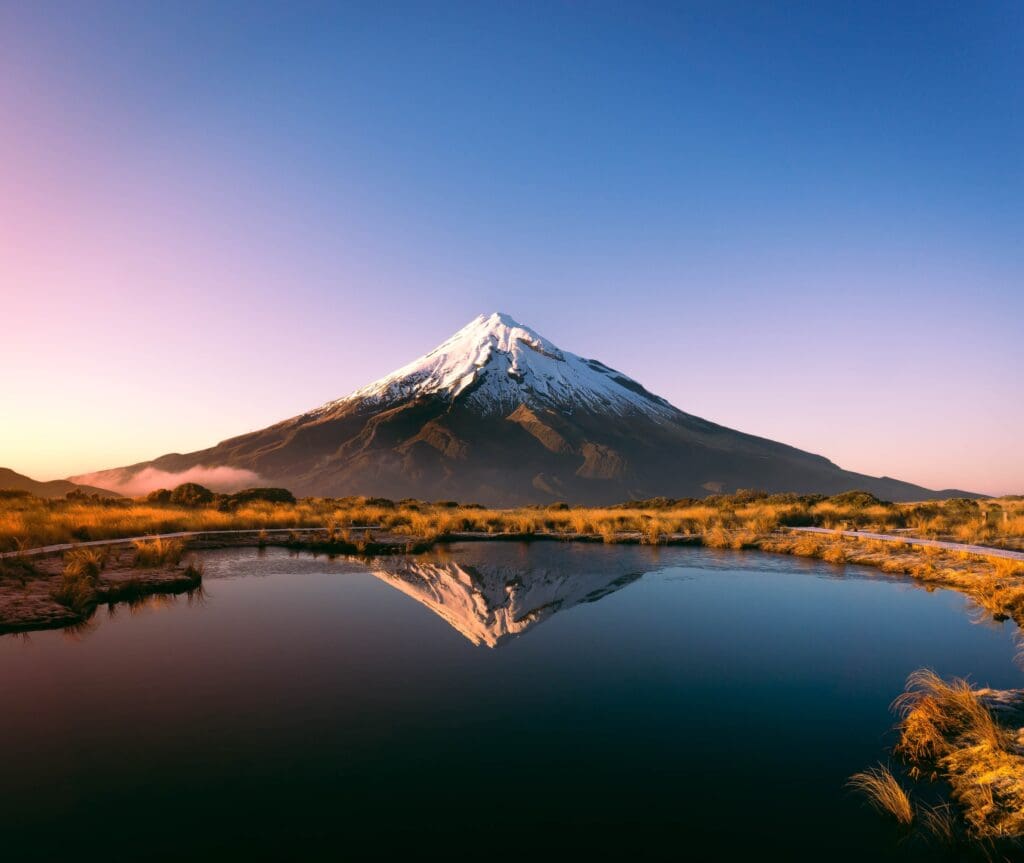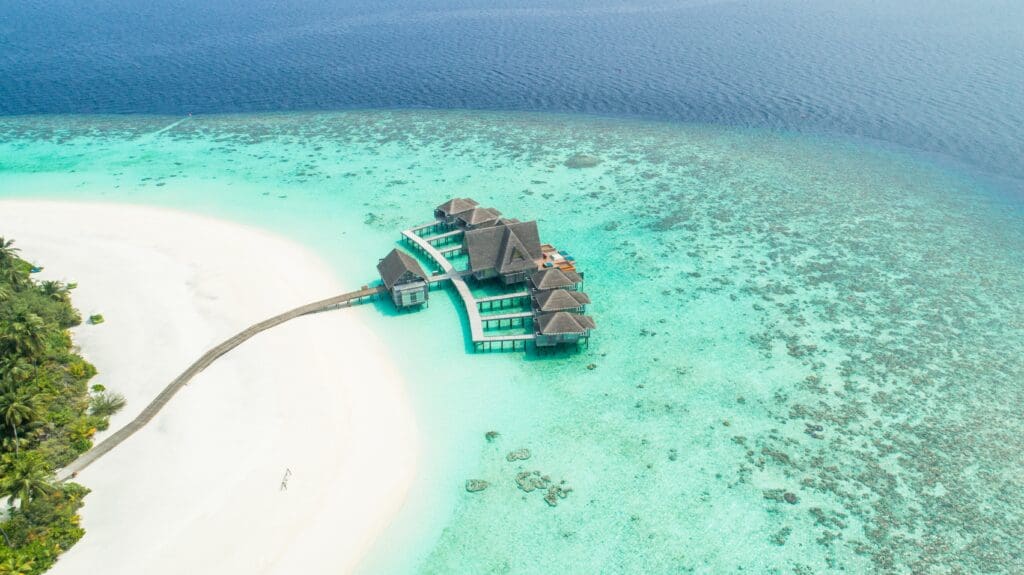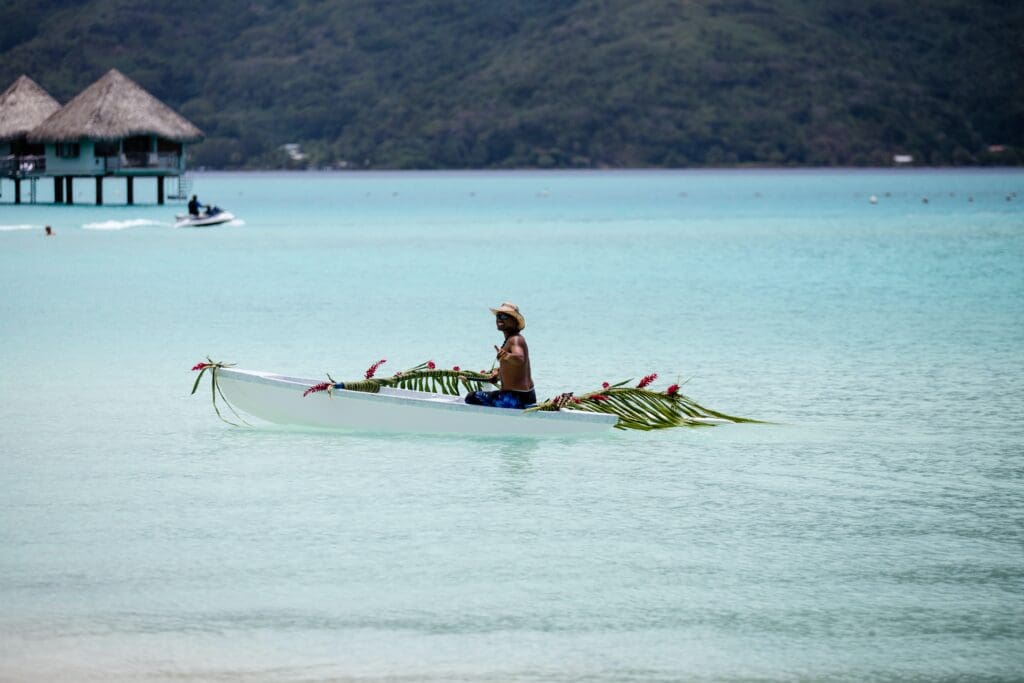Sustainable Luxury Travel is possible by being mindful of the travel choices you make.
Australian luxury travellers are increasingly looking for ways to travel sustainably, even when they’re splurging on luxury experiences. And why not?
Sustainable Luxury travel is possible, and there are ways to travel sustainably. The key is being mindful and taking the time to think about where you are going and plan ahead. And you need to do some research to work out is your destination or hotel is truly focussed on sustainable luxury travel.
Location plays a huge role in sustainable luxury travel as well as which flights you are going to take, how you will travel to and from the airport and which hotel you will choose.
Here are some details tips on how to achieve sustainable luxury travel and put the environment first.

Location
When choosing a destination for your sustainable luxury holiday, there are a few things to keep in mind.
First, consider the location’s natural beauty and its commitment to sustainability. You want to visit a place that is both stunning and environmentally conscious.
Second, think about the availability of sustainable transportation and accommodation when you travel. You’ll want to be able to get around without contributing to pollution, and you’ll want to stay in a hotel that is making an effort to reduce its environmental impact.
With these factors in mind, here are a few of the best places to visit for sustainable luxury travel, bot do understand there are many, many other options and particularly luxury sustainable hotels which are fantastic to stay in and not in these locations:

Maldives: The Maldives is a tropical paradise with stunning coral reefs and crystal-clear waters. The country is also committed to sustainability, and many of the resorts there have been designed with the environment in mind.
New Zealand: New Zealand is known for its stunning scenery, from snow-capped mountains to lush forests. The country is also home to a number of sustainable tourism initiatives, making it a great choice for those who want to travel responsibly.
Costa Rica: Costa Rica is a Central American country with a long history of environmental protection. The country is home to a number of national parks and reserves, and many of its hotels and tour operators are committed to sustainable practices.
French Polynesia: French Polynesia is a group of islands in the South Pacific. The islands are known for their white-sand beaches, turquoise waters, and lush rainforests. French Polynesia is also committed to sustainability, and many of its resorts have been designed with the environment in mind.
Flights
When it comes to flights, there are a few things you can do to reduce your environmental impact. First, choose a direct flight whenever possible. This will help to reduce the amount of fuel that is burned. Second, consider flying with a carbon-offsetting airline. These airlines invest in projects that help to reduce greenhouse gas emissions.

Hotels
When choosing a hotel, look for one that is committed to sustainability. There are a number of hotels that have been awarded the Green Globe certification, which means that they have met a set of sustainability standards.
These hotels often have features such as solar panels, water-saving fixtures, and recycling programs.
Sustainable luxury travel is possible, and it doesn’t have to bring added expenses. By following these tips, you can enjoy the finer things in life without compromising on your environmental values.

Additional insider tips to travel sustainably
- Pack light. The less weight you carry, the less fuel your flight will use.
- It might not sound glamorous, but bring your own reusable water bottle and coffee cup or buy one when you arrive at the destination This will help to reduce the amount of single-use plastic that you use.
- Eat local food. This will help to support the local economy and reduce your carbon footprint.
- Get involved in sustainable tourism initiatives. There are a number of ways to get involved in sustainable tourism, such as volunteering at a local conservation project or visiting a local community or donating to a sustainable tourism organisation.
- Share any sustainable initiatives you discover on your social media so others are made aware of where they should travel.



